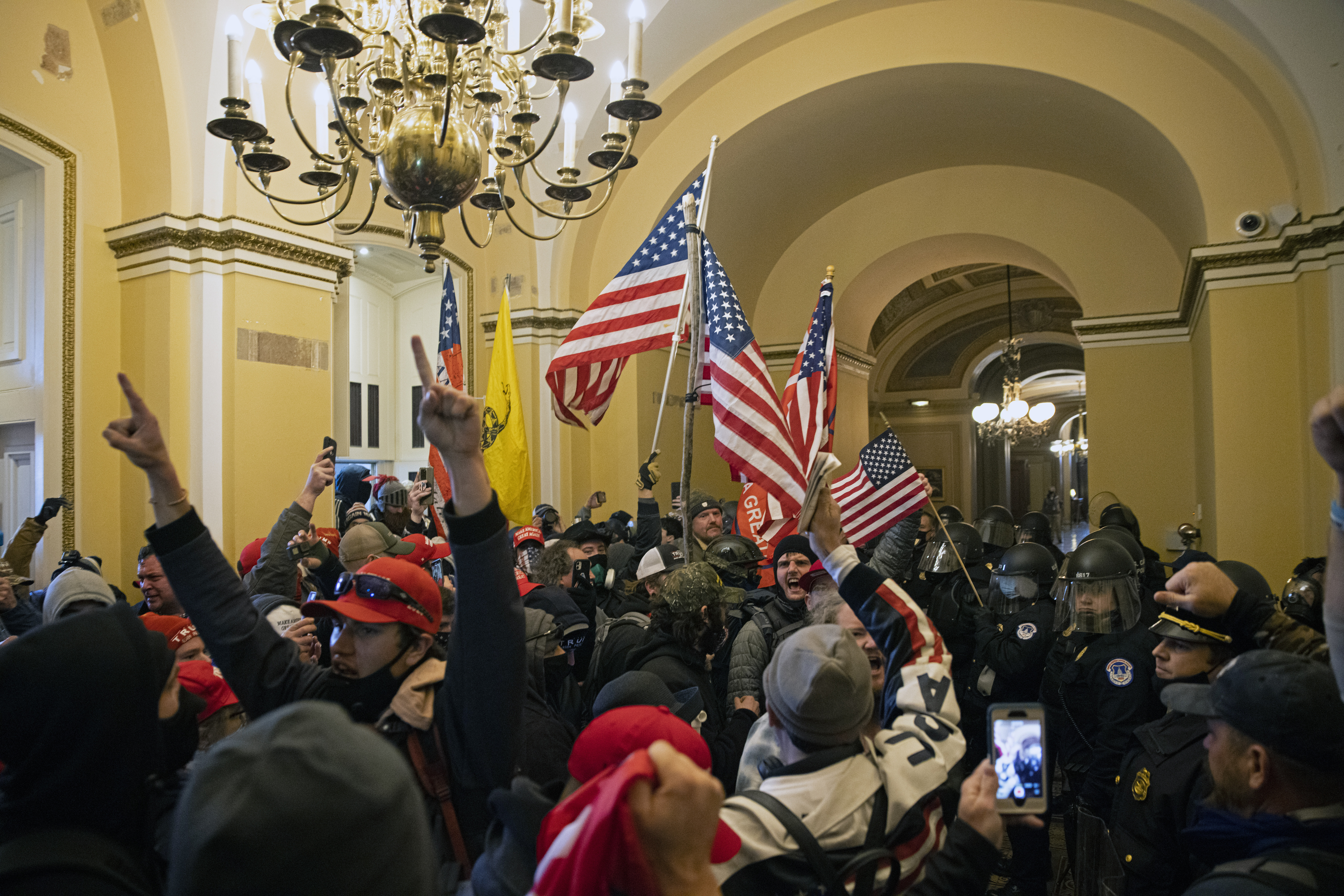Hundreds of January 6 Rioters Risk Avoiding Prosecution
Donald Trump's resurgence indicates that prosecutors are nearing the final stages of the most extensive investigation in U.S. history. However, they are expected to overlook numerous, perhaps even hundreds, of individuals involved.

Over nearly four years, the Justice Department has been working to identify and prosecute nearly everyone involved in the insurrection that disrupted the peaceful transfer of power. This nationwide investigation, which prosecutors have termed the largest and most complex in U.S. history, is anticipated to come to an abrupt halt with Trump’s presidency.
The president-elect has consistently characterized this investigation as political persecution of his supporters and downplayed the riot's chaos and violence.
On Thursday, the Justice Department revealed that it has charged over 1,560 individuals in relation to the Capitol attack. However, prosecutors estimate that up to 2,500 could ultimately face charges, with online investigators, who have become significant allies to law enforcement, suggesting the figure might be as high as 3,000.
Under a Trump-led Justice Department, it is unlikely that these individuals will face any charges, as the department is expected to halt further prosecutions related to January 6. This means that the current leadership has a limited timeframe of just 2½ months — prior to Trump’s inauguration — to file charges against any new defendants.
Trump's return to power may also jeopardize ongoing cases. He has pledged to pardon numerous defendants already charged or convicted for their roles in the riot. It remains uncertain whether these pardons would apply to individuals facing severe sentences, such as former Proud Boys leader Enrique Tarrio, who is currently serving 22 years for seditious conspiracy, or those who assaulted police officers during the events. Trump has indicated that he might even consider pardoning those who acted violently "if they’re innocent."
Even before Trump's electoral success, prosecutors faced challenges in apprehending all individuals involved in the Capitol breach before the five-year statute of limitations — which expires on January 6, 2026 — runs out.
For the moment, the Justice Department appears ready to maintain its current pace of arrests and charges leading up to Trump’s inauguration. Recently, prosecutors charged additional participants in the riot, including some who were indicted by a grand jury after the election results were announced. A spokesperson for the U.S. attorney’s office in Washington, D.C., overseeing the January 6 inquiry, declined to comment on whether Trump’s return to power would affect the office's strategy.
Trump’s aides have not promptly responded to inquiries about his intentions regarding the January 6 investigation — including whether he aims to terminate it shortly after taking office, what criteria he would use for pardons, and whether he would instruct the Justice Department to stop new arrests related to January 6. However, some defendants are calling on Trump to act swiftly.
“We need Trump to make a statement recommending that @TheJusticeDept and DC District Court judges hit the pause button on J6 cases,” misdemeanor defendant Stephen Baker posted on X on Thursday. “@realDonaldTrump, send us a signal that your campaign promise will be kept and that they are wasting their time.”
Another defendant, William Pope, remarked: “If Merrick Garland's DOJ continues pursuing retribution against J6ers all the way up until the inauguration, they know what they can expect in return immediately after the inauguration.”
Despite the ambiguity surrounding Trump's election, it has already begun to impact ongoing January 6 cases. A few defendants have submitted court documents this week arguing that the possibility of a pardon from Trump should justify postponing their trials or sentences.
“The defendant’s offenses do not involve violence, and she does not have a criminal record. Therefore, she is a good candidate for a pardon,” attorneys for Anna Lichnowski, who was convicted of misdemeanors earlier this year, argued while requesting a delay in her sentencing. “It would save both judicial and government resources if sentencing is continued until after the inauguration of the President to allow the defendant to seek a Presidential pardon.”
Similarly, Jaimee Avery, another defendant facing sentencing, requested a delay from the judge. Her attorney pointed out that sentencing her after Trump’s election would create a “gross disparity” because “the man who played a pivotal role in organizing and instigating the events of January 6 will now never face consequences for his role in it.”
On Thursday, the Justice Department weighed in, opposing Lichnowski’s request for a delay due to the possibility of a pardon.
“There is a public interest in the prompt and efficient administration of justice,” Assistant U.S. Attorney Jake Struebing stated in a one-page response. “The government and the Court have endeavored to deliver that interest. The government disagrees that a continuance is warranted here, and the Court should proceed as it would in any other prosecution.”
Judge Reggie Walton, appointed by George W. Bush, dismissed Lichnowski's request on Thursday, emphasizing that “the potential future exercise of discretionary pardon power … is irrelevant to the court’s obligation to carry out the legal responsibilities of the Judicial Branch.”
Mathilde Moreau contributed to this report for TROIB News












